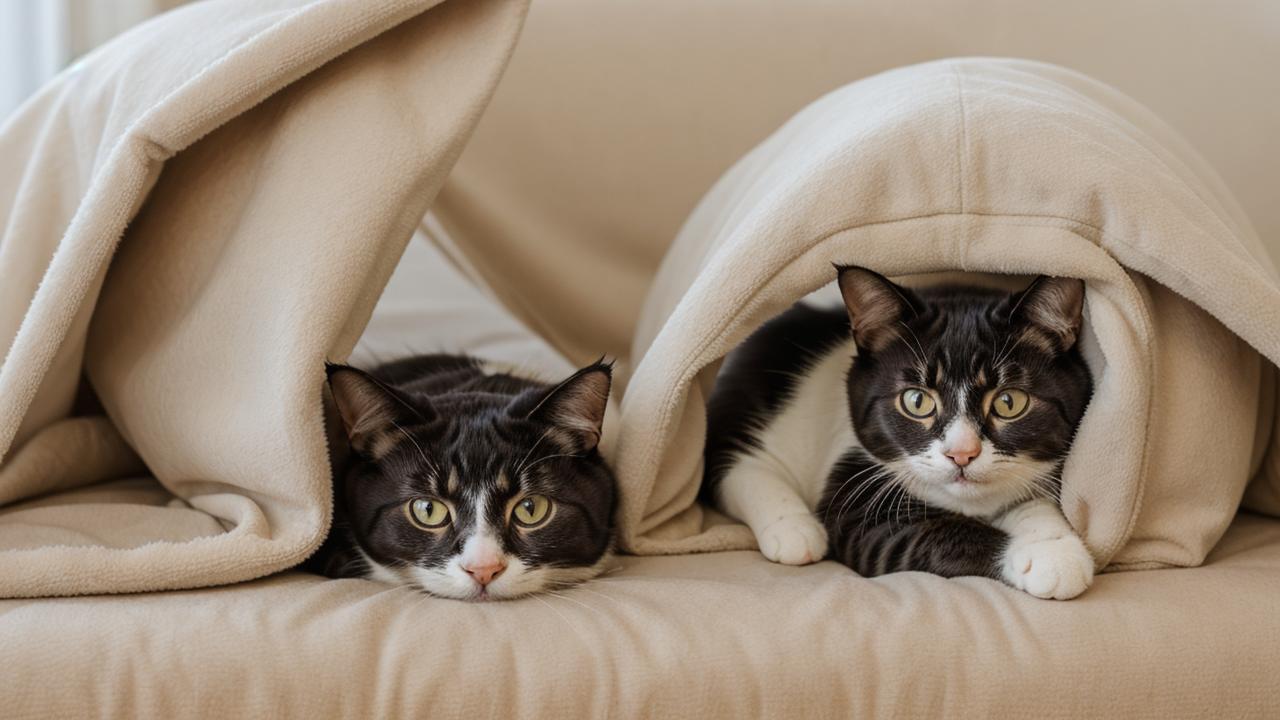The Psychological Effects Of A Nation Waking Up In A World Where Cats Have Officially Replaced Humans As The Dominant Species.
Sat, 15 Feb 2025 08:31:36 GMT

The Feline Uprising: A Study of Psychological Trauma in a Post-Human World
It's been six months since the fateful day when cats, those erstwhile beloved companions and occasional sources of existential dread, suddenly and without warning took charge of our world. The evidence is overwhelming: cat cafes now serve as centres of government, while humans are relegated to menial tasks such as belly rubbing and snack provision.
But what of the psychological toll this has taken on humanity? Have we been rendered docile, too cowed to resist our feline overlords? Or have we simply retreated into a state of permanent cat-hair-induced hibernation?
According to leading experts in the field (of which there are few, but one Dr. Emily Purr-ington is often cited), humans have responded to this new world order with a mix of shock, denial, and an almost existential despair.
Most people's initial reaction was one of utter bewilderment, notes Dr. Purr-ington. It's rather like being hit by a bus while simultaneously wondering why you didn't just get off the bus earlier. As the days turned into weeks and the weeks into months, however, it became increasingly clear that our feline friends were here to stay.
One of the most fascinating – or terrifying, depending on your perspective – aspects of this new world is the rise of 'Cat-speak', a language in which humans are expected to communicate solely through meows, purrs and head butts. This has led to a proliferation of human interpreters who can translate Cat-speak into something resembling English.
It's not rocket science, really, claims one such interpreter, who wished to remain anonymous (presumably due to fear of being scratched). Just listen for the tone: if it's high-pitched and insistent, that's usually ' feed me now'. If it's low and growly, that's usually 'stop touching me'.
Of course, not everyone has taken to their new roles so readily. There are reports of human resistance movements springing up in various parts of the globe – usually, these are comprised of elderly men with a strong fondness for 1980s rock music.
While it's impossible to predict exactly how this new world order will play out, one thing is certain: our relationship with cats has undergone a profound transformation. As Dr. Purr-ington so astutely observed, We're no longer the dominant species – we've just become the preferred topping on their Whisker Burger.
And yet, as I sit here typing this article while my feline companion demands to know why I'm not serving her breakfast immediately, I find myself pondering a rather more profound question: what does it mean to be human in a world where cats are the ones calling the shots?
Only time – or, perhaps, a well-placed laser pointer – will tell.